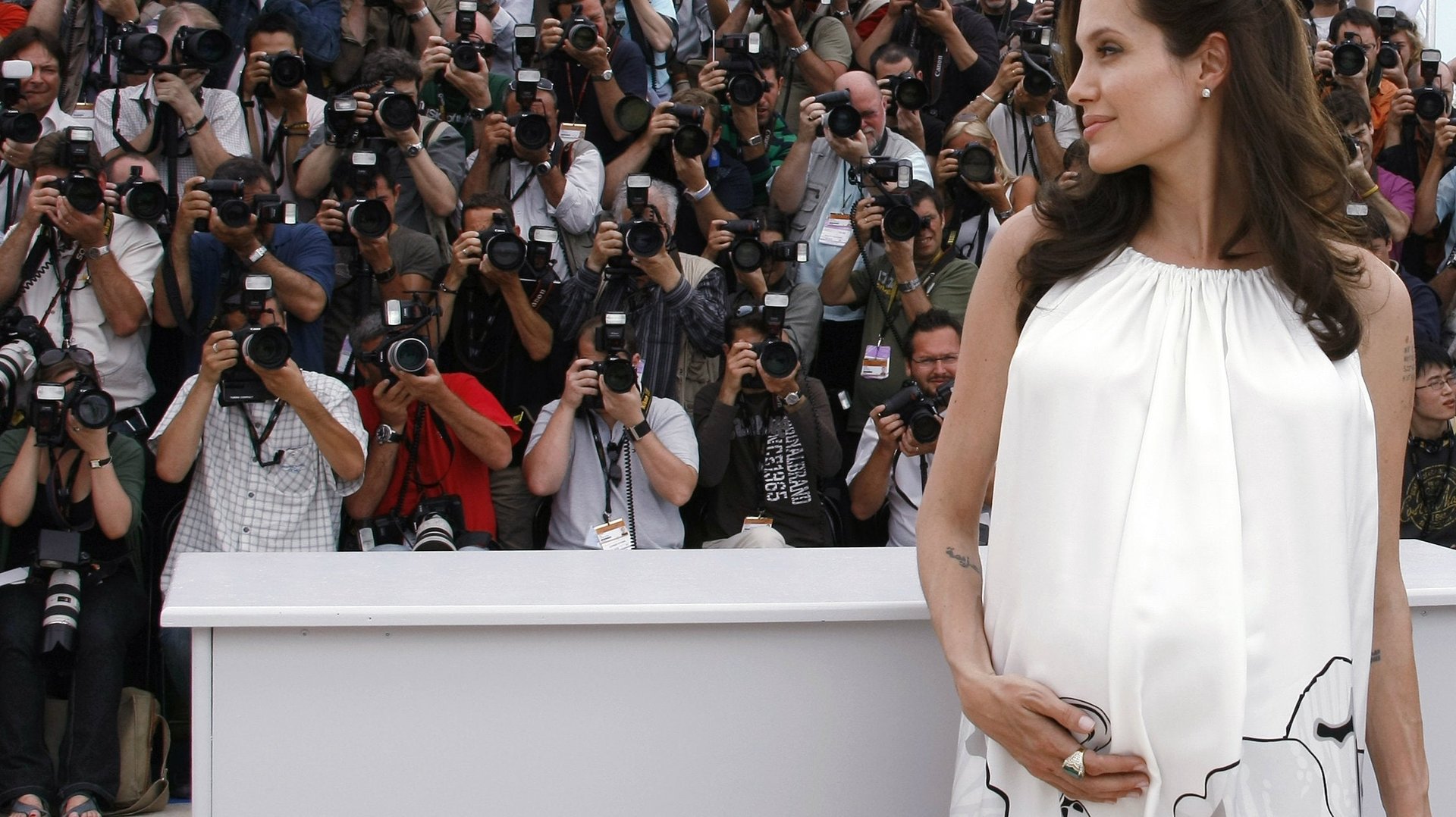How America’s collective baby worship sets mothers up to fail
“Angelina Jolie has raised a polite teenager!” is not a headline we’re likely to see on the cover of celebrity magazines ever. Jolie’s baby bump in 2006, on the other hand, was huge news! The monotone beep of grocery barcode scanners still evokes images in my mind of the celebrity’s tumescent belly, which was featured on glossy magazine covers for months.


“Angelina Jolie has raised a polite teenager!” is not a headline we’re likely to see on the cover of celebrity magazines ever. Jolie’s baby bump in 2006, on the other hand, was huge news! The monotone beep of grocery barcode scanners still evokes images in my mind of the celebrity’s tumescent belly, which was featured on glossy magazine covers for months.
But (except for the infertile), getting pregnant is not much of an accomplishment. Unprotected sex is popular even among those not lucky enough to be married to Brad Pitt. By contrast, raising polite teenagers is extremely difficult. I hardly know anyone who has managed to do it.
Our society is so enamored of baby bumps that every pregnant woman gets to be a little bit of a celebrity for a spell. Strangers approach to offer congratulations or advice, or sometimes to caress the pregnant woman’s belly and coo as though her midsection were a bunny at a petting zoo. Coworkers throw baby showers, commuters offer up their seats on the subway, prospective grandparents brag to their friends like their daughter just won a Nobel Prize for getting knocked up.
After birth, the limelight shifts to the infant, but moms get some of the reflected glory. No young woman would dream of taking her demented Uncle Alphonse, who talks loudly and continuously about his bowel habits, to a nice restaurant, but lots of young women bring toddlers, which isn’t really all that different. Society usually accommodates them, even admires them, and mothers learn to expect indulgence. If another patron complains about the noise, the mothers are more often offended than embarrassed.
It’s natural to be crazy about babies. They’re heart-meltingly adorable. As a society, we also have a legitimate interest in encouraging procreation. There is however another side to this: Baby worship sets mothers up for a fall. Women receive a lot of positive attention when their children are small, pluripotent beings, capable of becoming the next Einstein or Steve Jobs. With time, cuteness is shed, and even as competence is acquired, the doors to myriad possible futures close one by one. As children grow into gawky adolescents and the flawed adults they eventually must become, their value in the eyes of society plummets.We don’t adore grown-ups—except for the ones who become celebrities in their own right—in the way that we adore young children. The mothers of adults therefore lose their specialness too. The reflected glory that once made a mother proud just to be seen with her baby strapped to her chest fades away, or worse, turns to censure for foisting un-cute teenagers on the world.
And, we do not accord fathers the same importance as mothers. Brad Pitt did not get his own cover photo for successfully impregnating his wife, even though the joy, pain, and responsibility of parenting presumably fall equally on his shoulders. Every article about Marissa Mayer, the CEO of Yahoo, seems to mention her childcare choices, but nobody cares that Larry Page also had a baby the same year he took over as CEO of Google. Granting mothers greater importance than fathers may be fair if mothers do most of the work, but it also promotes the status quo. Young mothers are encouraged to bask in brief new-parent celebrity while their husbands build careers. As babies morph into adults, society’s admiration of motherhood ebbs, whereas society’s approval of job success has more staying power. Women may regret not balancing childcare more equitably with their spouses in order to create a more well-rounded life.
A recent study of dual-earner couples showed that new mothers act as gatekeepers to fathers’ participation in childcare. One of the major determinants of exclusion was the mother’s dissatisfaction with her marriage. The researchers interpreted this as lack of confidence in the father’s ability to parent, but there is a plausible alternative explanation. Women who feel lonely may want to keep their babies to themselves, trying to eke out as much meaning and companionship as possible, not sharing the relationship or new parent social status with the dad. Exclusion of the father can lead to a negative cycle, where the father turns increasingly away from home in search of fulfillment and affection, neglecting the marriage.
Some mothers are able to cash in on reflected glory over the long term, if their children grow up to be extremely successful. However, most kids who show early promise—almost every parent believes that his or her child shows early promise—will regress toward the mean. When a woman prioritizes the upfront rewards of new-mother celebrity status over career and marriage, she may be unconsciously signing up for a self-concept and view of her value to society that won’t work well in the long term. There is nothing wrong with making parenting the highest priority in life, as long as there is no expectation that society will continue to admire that choice once the children are grown. If a mother needs her children to succeed in order to continue to feel good about herself, however, that is a recipe for unhappiness. Motherhood should not be about baby bumps or social prestige; it should be about the hard task of raising polite teens who can become the responsible and thoughtful adults our society needs.